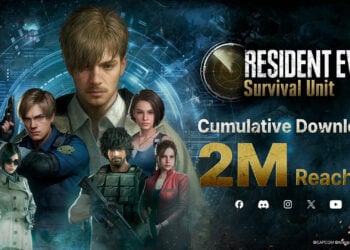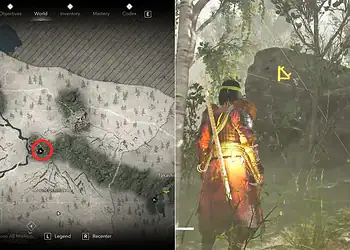Among the enigmatic members of Hexenzirkel—the secret society of witches in Genshin Impact—Octavia stands out as perhaps the most mysterious and tragic figure. With the release of version Luna II and the introduction of the Miliastra Wonderland UGC game mode, players finally caught their first glimpse of this fascinating character through a stunning opening cutscene narrated by Venti.
Octavia’s story weaves themes of loss, preservation, and eternal wandering across dying universes, making her one of the most philosophically complex characters in Genshin Impact’s expanding lore.
Table of Contents
Genshin Impact: Octavia at a Glance
| Characteristic | Details |
|---|---|
| Codename | “O” of Hexenzirkel |
| Affiliation | Hexenzirkel (Secret Witch Society) |
| Special Ability | World Creation & Preservation |
| Status | Unknown (Possibly Alive) |
| Notable Creation | Miliastra Wonderland |
| Close Associates | Anya M. Andersdotter, Barbeloth |
| First Appearance | Version Luna II (2025) |
| Key Trait | Eternal Wanderer Across Universes |
The “O” of Hexenzirkel: A Witch Without a Home
Octavia carries the codename “O” as part of Hexenzirkel, the secretive witch group in Genshin Impact. According to the in-game book The Little Witch and the Undying Fire, her homeland was destroyed at some point in the past, and instead of fighting back against the reason, she chose to wander eternally across many worlds in the universe.

This choice defines Octavia’s entire existence—rather than seeking revenge or attempting to rebuild, she became a witness to countless civilizations, cultures, and stories across the multiverse. This philosophical approach to tragedy sets her apart from typical revenge-driven characters in gaming narratives.
She is said to be close with the older witches, likely referring to Anya M. Andersdotter. Other witches in Hexenzirkel regard her as someone who has seen and traversed too many worlds and has many tales to tell about the sky beyond the sky—a reference to Teyvat’s false sky, one of Genshin Impact’s most intriguing mysteries.
The Loneliness of an Eternal Traveler
Perhaps the most poignant aspect of Octavia’s character is her profound loneliness. Because of her wandering nature, her chair is often left empty during Hexenzirkel’s tea parties. She rarely comes to visit the other witches in Teyvat, but whenever she does, her loneliness subsides with each passing moment.
This detail humanizes Octavia despite her god-like abilities. She possesses the power to traverse universes and preserve dying worlds, yet she still craves the simple companionship of friends gathered around a tea table. It’s this duality—immense power paired with deep emotional vulnerability—that makes her such a compelling character.
Her status is currently unknown in-game, with little to no information on whether she’s currently alive or dead, adding another layer of mystery to her narrative. Given her ability to travel between worlds and dimensions, traditional concepts of life and death may not even apply to her.
Miliastra Wonderland: A Pocket Universe Born from Loss
The Miliastra Wonderland represents Octavia’s most ambitious creation and reveals the depth of her character. According to the opening cutscene, Octavia built the Miliastra Wonderland from fragments of history, culture, and people she gathered during her travels. Every world she visited eventually met its end for reasons still unknown.
Rather than allowing these civilizations to disappear completely into the void, she gathered these fragments and turned them into small pockets of worlds she could carry with her. Imagine carrying the last remnants of extinct civilizations—their art, music, stories, and essence—preserved in miniature universes. This act transforms Octavia from a mere wanderer into a cosmic archivist and guardian of lost cultures.
Inspired by her Hexenzirkel friends, such as Barbeloth and Andersdotter, she decided to compile all these remnants into a world of her own. This decision shows how her friendship with other witches influenced her creative process, suggesting that despite her loneliness, these connections profoundly impacted her.
The Traveler: Octavia’s Perfect Protagonist
Her only missing piece was a main character who could set everything in motion. For that, she had returned to Teyvat to meet with her friends and locked her sights on the Traveler as the perfect protagonist.
This choice is narratively significant. The Traveler—like Octavia—is fundamentally displaced, searching for their sibling across worlds. Both characters understand what it means to be separated from home and to wander through universes not originally their own. This thematic parallel makes the Traveler the ideal person to breathe life into Octavia’s preserved worlds.
She leaves once again by giving her world to the Traveler to explore and bring life to, demonstrating both trust and a desire to see her creation truly flourish. By entrusting Miliastra Wonderland to the Traveler, Octavia ensures these preserved fragments of dying civilizations receive the one thing she cannot provide while constantly wandering—sustained attention and inhabitation.

Theories and Future Implications
Octavia’s story raises compelling questions about Genshin Impact’s broader narrative:
The Dying Worlds Mystery: Why do all the worlds Octavia visits eventually end? Is there a universal force causing these apocalypses, or is she drawn to worlds already in decline? This pattern suggests something systematic rather than coincidental.
Connection to Teyvat’s False Sky: Her knowledge of “the sky beyond the sky” indicates she understands Teyvat’s true nature better than most characters. Will she reveal crucial information about the Firmament and the Heavenly Principles?
The Hexenzirkel’s Purpose: Octavia’s relationship with other witches, particularly the older generation like Andersdotter, suggests the Hexenzirkel might have deeper cosmic purposes beyond their tea parties and social gatherings.
Status Ambiguity: The uncertainty about whether Octavia is alive or dead might not be accidental. Perhaps she exists in a state beyond conventional life and death, similar to how she exists outside normal spacetime by traversing universes.
Gameplay Integration: Miliastra Wonderland UGC
The Miliastra Wonderland game mode represents HoYoverse’s innovative approach to user-generated content (UGC). Players can create, explore, and share custom domains using the fragments Octavia preserved, effectively continuing her work of preservation and creation.
This gameplay mechanic beautifully mirrors the narrative—just as Octavia preserves dying worlds, players preserve their creative visions within the game. The UGC system transforms players into co-creators of Octavia’s legacy, blurring the line between gameplay mechanics and storytelling.
As Miliastra Wonderland expands in future updates, HoYoverse will probably shed more light on her past and the true purpose behind the world she created. This suggests Octavia will remain relevant to Genshin Impact’s narrative, with potential for deeper revelations about her origins, the fate of her homeland, and her ultimate goals.
Why Octavia Matters to Genshin Impact’s Lore
Octavia represents Genshin Impact’s maturation as a narrative experience. Her character explores themes rarely addressed in action RPGs—existential loneliness, the weight of witnessing civilizations die, the ethics of preservation versus intervention, and the search for meaning in an endless journey.
She also connects to broader questions about Teyvat’s place in the multiverse, the nature of reality within the game world, and the ultimate fate awaiting all worlds. As players continue exploring Miliastra Wonderland and uncovering its secrets, Octavia’s influence on the game’s mythology will likely grow substantially.
For comprehensive Genshin Impact character guides and lore analysis, explore our expert coverage. Visit Genshin Impact’s official website for the latest updates on Miliastra Wonderland and upcoming events.
Stay informed about gaming narratives and character deep-dives shaping modern RPG storytelling.
Frequently Asked Questions
Q: Is Octavia a playable character in Genshin Impact, and will she become available in future updates?
A: Currently, Octavia is not a playable character in Genshin Impact and exists purely as a lore figure introduced in version Luna II through the Miliastra Wonderland opening cutscene. HoYoverse has not announced any plans to make her playable. Given that her status remains unknown—with uncertainty about whether she’s even alive—and her nature as an eternal wanderer who rarely visits Teyvat, it’s unclear if she’ll ever become a recruitable character. However, many Hexenzirkel members like Alice remain unplayable despite significant lore presence, suggesting Octavia might follow this pattern. Her mysterious nature and world-creating abilities might make her too powerful narratively to balance as a playable character, though stranger things have happened in Genshin Impact’s development.
Q: What is the significance of Miliastra Wonderland, and how does it connect to Genshin Impact’s main story?
A: Miliastra Wonderland is Octavia’s creation, built from fragments of history, culture, and people she gathered from dying worlds during her eternal travels. Rather than letting these civilizations vanish completely, she preserved their essence in small pocket universes, eventually compiling them into one comprehensive world inspired by her Hexenzirkel friends. The Wonderland’s significance extends beyond being a UGC game mode—it represents themes of preservation against inevitable entropy and raises questions about Teyvat’s ultimate fate. Octavia’s knowledge of “the sky beyond the sky” (Teyvat’s false sky) suggests she understands cosmic truths about the game world. Her choice to entrust this creation to the Traveler—another displaced wanderer—creates thematic parallels about searching for home and purpose. As the Wonderland expands in future updates, it will likely reveal crucial information about multiverse mechanics, the reasons worlds die, and potentially foreshadow Teyvat’s own destiny within Genshin Impact’s broader narrative.







